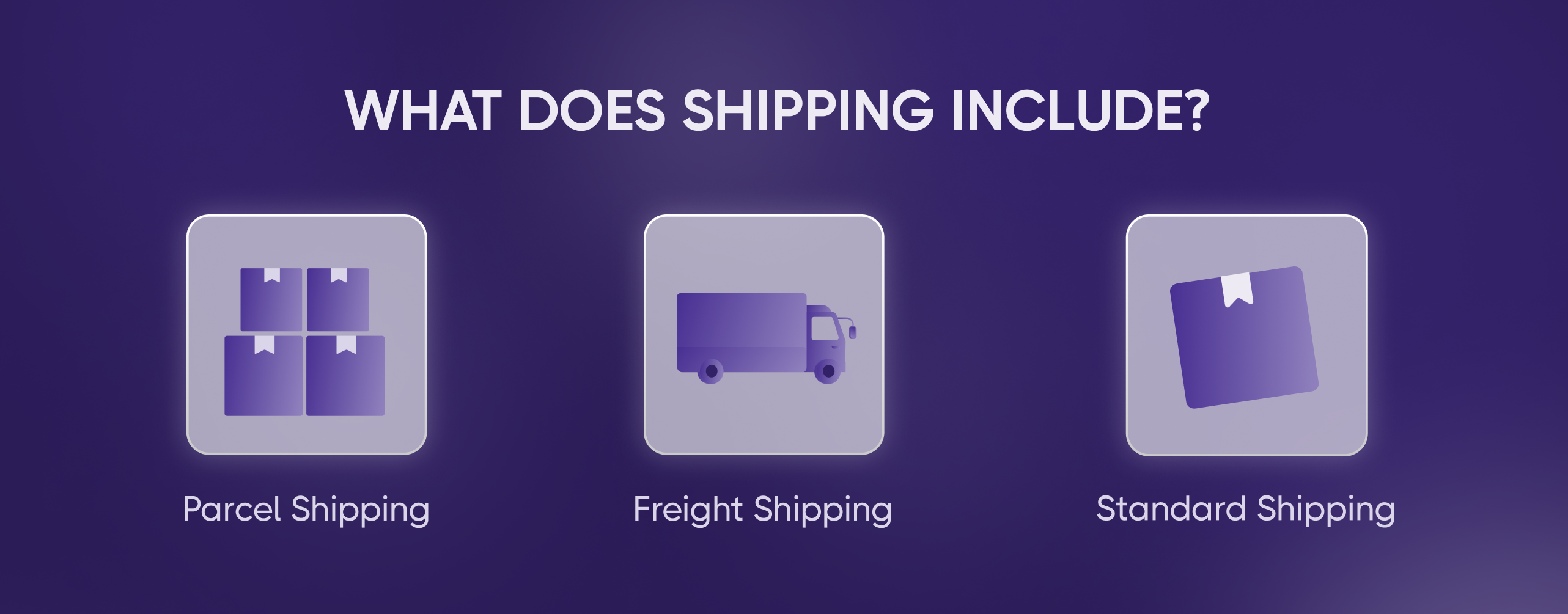
Sahiba Cuccria
8 mins read
4 mins read

Rizwan Datoo is a logistics and fulfillment consultant at eShipper specializing in D2C and B2B shipping solutions. He supports startups and established brands by simplifying complex shipping challenges and building efficient, reliable supply chains.

When businesses or individuals need to move goods, the terms "freight" and "shipping" often come up interchangeably. But they’re not the same. The difference between freight and shipping lies in volume, cost, handling, and the methods of transportation. Choosing the right option—whether full truckload (FTL), less-than-truckload (LTL), or parcel shipping—can impact your supply chain efficiency and costs.
In this article, we’ll break down what freight and shipping truly mean, compare their key differences, and help you decide which is best for your logistics needs.

Freight refers to the transportation of bulk goods over long distances, typically using trucks, trains, ships, or air freight services. Freight shipments are usually large, exceeding 150 lbs, and can be categorized into:
Freight packing and shipping require careful handling, as large or heavy goods often need pallets, crates, or containers for protection.

Shipping refers to the process of transporting goods from one location to another, regardless of size. While it includes freight, shipping is a broader term that covers parcel delivery, standard courier services, and freight logistics. Shipping typically involves:
Here’s a quick comparison of freight vs. shipping:
| Aspect | Freight | Shipping |
| Volume and Size | Large, bulk shipments (150 lbs and above) | Small packages or parcels (under 150 lbs) |
| Transportation Modes | Truck (FTL/LTL), air freight, ocean freight, rail | Standard courier, postal services, freight forwarding |
| Handling and Care | Requires specialized freight packing and shipping | Less complex handling, often pre-packaged |
| Delivery Speed | Varies based on mode (air freight is fastest) | Typically faster for small parcels |
| Cost | Generally higher, depends on weight and distance | Lower for small shipments |
| Use Case | Business bulk transport, supply chain logistics | eCommerce, consumer shipping |
Freight – Pros:
Freight – Cons:
Shipping – Pros:
Shipping – Cons:
Choosing between freight and shipping depends on the size, urgency, and cost considerations of your shipment. Freight delivery is best for bulk orders, while standard shipping is ideal for smaller packages. If you frequently transport goods, working with a shipping agent or freight forwarder can help streamline logistics and optimize costs.
At eShipper, we provide end-to-end logistics solutions, from freight shipping to parcel delivery, ensuring your business gets the best transportation options for your needs. Contact us today to streamline your logistics with expert freight forwarding and parcel shipping solutions!
A shipment refers to goods being transported, regardless of the mode, while cargo typically refers to large shipments transported by air, sea, or rail.
Cargo is a type of freight that specifically refers to goods transported by air or sea, whereas freight includes all bulk transportation methods, including trucking and rail.
Freight charges are for large, bulk shipments and vary based on volume, weight, and distance. Shipping charges apply to parcel delivery and are generally lower than freight costs.
Need help choosing the best shipping services for your business? Contact eShipper today to streamline your logistics with expert freight forwarding and parcel shipping solutions!